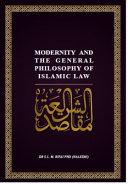
Introduction to the Study of Law
In this important work, Dr. Felipe Fierro offers a comprehensive view on the subject of Introduction to the Study of Law, in which he revives the use of Gnoseology, Philosophy, History and Logic as Auxiliary Sciences; and exposes how the abandonment of such has contributed to the exponential growth of Skepticism and Relativism, currently prevailing in the legal world. The above, through extensive experience in teaching Law from the Aristotelian-Thomistic platform, based on the elementary assumption that we must first prove the existence of the object of study, and contrast main legal branches in topics such as: what is Law?, why is Science?, what are Law, Justice, Facultative rights and the Common Good?; supported by extensive and select bibliography. In addition, the being, nature, concept, essence and properties of the sources, fundamentals and classification are described. But important elements such as knowledge, order, principles, Jurisprudence, and Natural law, fundamental legal concepts, the legislative process, the Constitution, interpretation and others are not absent. Morality and Legal Law are obligatory markers, which although considered in their own field, are not excluded, but different as to object and method. Predominantly, Justice is exposed as one of the great values of the Law, and main theories in order to offer future lawyers the basis regarding the current Science of Law and its significance.
- ISBN 13 : 1506520472
- ISBN 10 : 9781506520476
- Judul : Introduction to the Study of Law
- Pengarang : Dr. Felipe de Jesús Alvídrez Fierro,
- Kategori : Law
- Penerbit : Palibrio
- Bahasa : en
- Tahun : 2018
- Halaman : 578
- Google Book : https://play.google.com/store/books/details?id=KR5bDwAAQBAJ&source=gbs_api
-
Ketersediaan :
In this important work, Dr. Felipe Fierro offers a comprehensive view on the subject of Introduction to the Study of Law, in which he revives the use of Gnoseology, Philosophy, History and Logic as Auxiliary Sciences; and exposes how the ...







